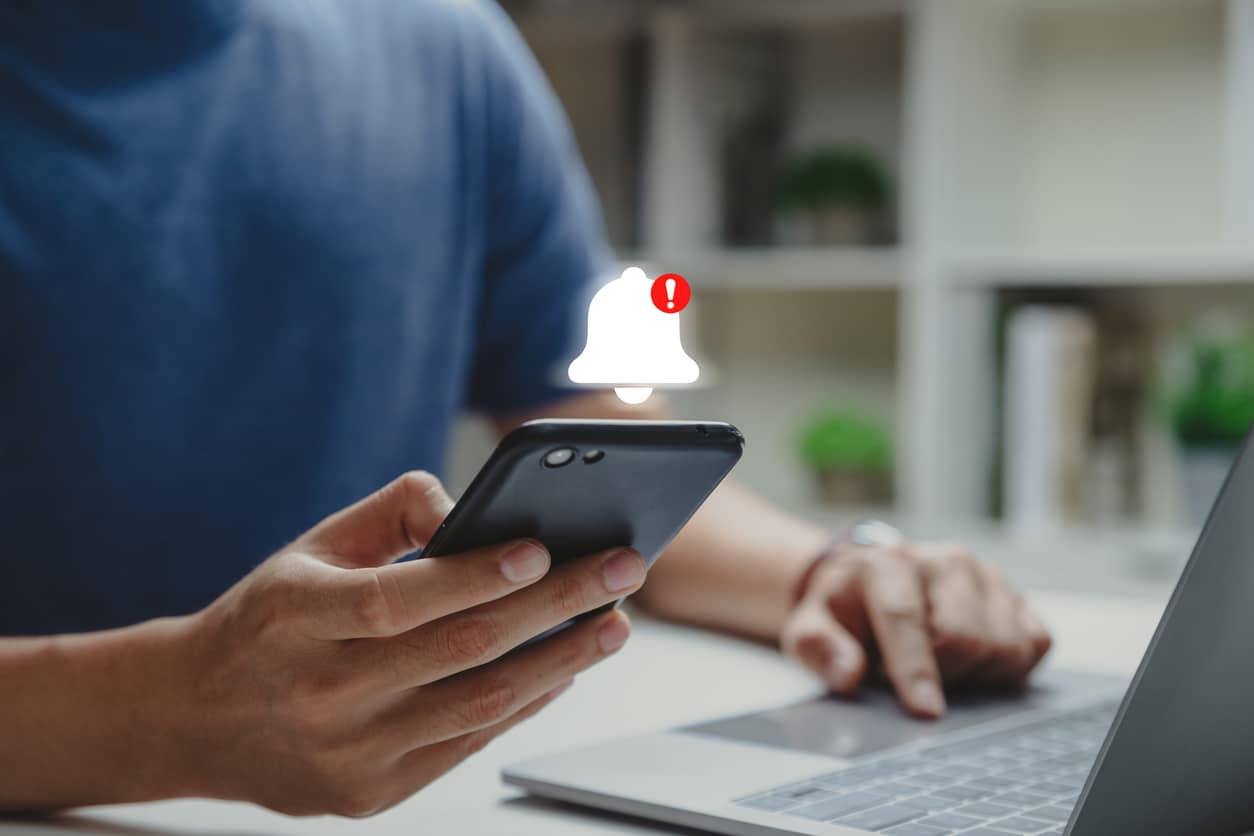Approximately 15% of adults in the United States experience some level of hearing loss. Living with hearing loss brings about safety and informational concerns. Our ears serve as crucial sensors, alerting us to potential dangers such as oncoming vehicles, fire alarms or warnings from others. In addition to safety concerns, we rely on our ears to alert us to less dangerous but still important cues. These cues may include alarm clocks, doorbells, text messages and more.
While hearing aids are invaluable during waking hours, there are instances when they can’t be worn, like during sleep or while showering. During these times, specialized alerting devices designed for people with hearing loss can be relied upon to ensure safety and prompt information. Let’s explore a few of these devices and how they can benefit you.
Two Different Types of Alerting Devices

Alternative alarms for people with hearing loss focus on alerting using visual or tactile alerts:
- Visual alarms. Visual alarms substitute sound with bright, flashing lights. Examples include flashing smoke detectors, smartphone notifications, strobe alarm clocks and doorbell signalers. Having visual alarms installed at home can prove crucial during emergencies or when hearing aids are unavailable or malfunctioning.
- Tactile alarms. Tactile alarms employ vibrations to notify you of important events or information. Vibrating cell phones and alarm clocks are common examples. Additionally, with the advent of smart home technology, doorbell cameras and motion sensors can be integrated to send alerts directly to smartphones, enhancing accessibility and safety.
How Can These Alerts Benefit You?
While hearing aids improve daily life, it is crucial to prepare for situations where you cannot wear them or they stop operating as they should. Visual and tactile alerts bridge this gap, ensuring you remain informed and safe. Whether it’s a flashing doorbell alert indicating a visitor or a vibrating alarm clock ensuring you don’t arrive late to work or school or miss the opportunity to pick up your favorite Raven Café breakfast sandwich, these alternative alerting devices are indispensable tools for those with hearing loss.
For further guidance on managing hearing loss, contact Prescott Ear, Nose, Throat & Allergy today to schedule an appointment with one of our specialists.
